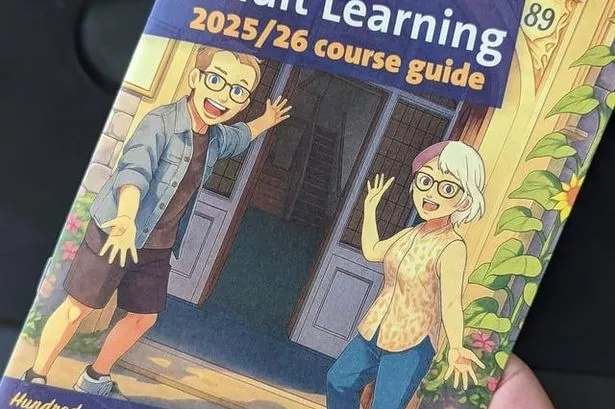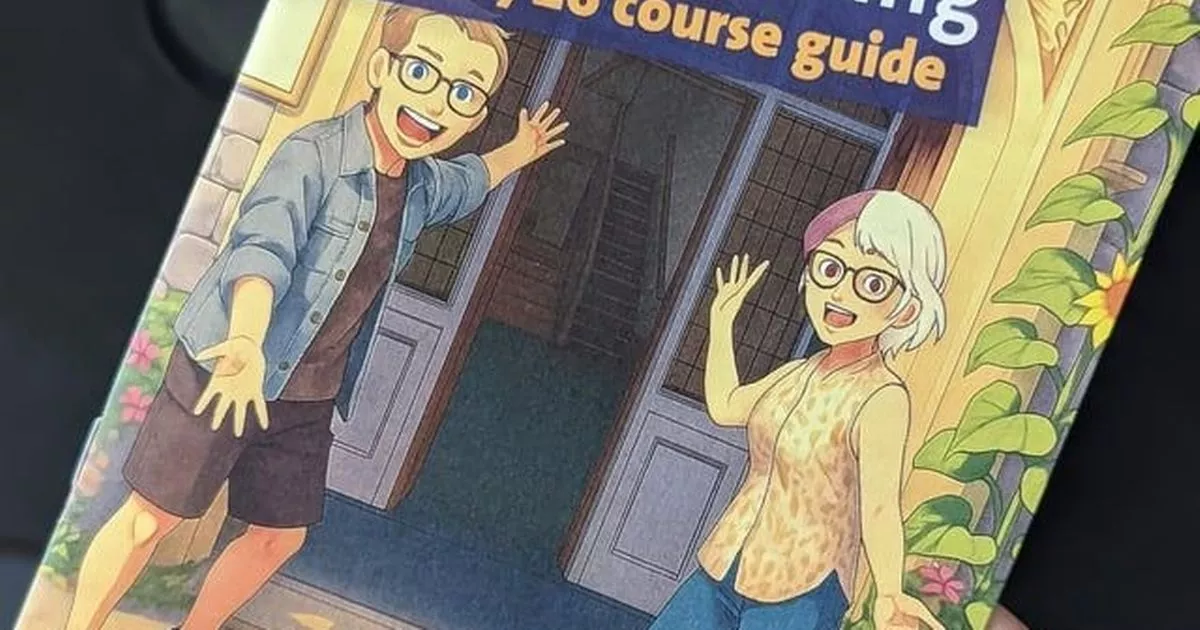The ‘misguided’ decision has been describes as going against Bristol’s values The AI-generated cover of Bristol’s Adult Learning course guide has prompted a backlash(Image: Adam Birch)
The AI-generated cover of Bristol’s Adult Learning course guide has prompted a backlash(Image: Adam Birch)
Bristol City Council has been accused of betraying the city’s values by using AI to generate cover art for one of its own pamphlets.
The image features on the front page of a booklet promoting the Adult Learning courses, which include subjects such as painting and design.
Tell-tale signs that the image was AI-generated include the people featured having an incorrect number of fingers and toes, and the image having a yellow hue which makes it look like something out of the Simpsons.
Adam Birch, a Bristol-based designer and illustrator, said the move was a kick in the teeth for the city’s creative community, even though he hoped the decision was ‘misguided’, rather than malicious.
“The whole point of the pamphlet was to advertise the creative courses across Bristol and other courses as well,” Mr Birch said. “Something devoid of creativity is being used to promote creativity.”
Along with the cover art, about 10 other images inside the pamphlet appear to have been generated using AI, he added.
Mr Birch said he was especially upset about the sad irony of the council using AI to encourage people to take creative courses, particularly in a city like Bristol that celebrates its creative industries.
“What that message really is is like, why bother to learn these skills if this is how much they’re valued? It just sends a really sort of sour message, I think, to creative people in general.”
“What a city for it, we’ve got television and movies, music, art, we’ve got everything here, acting and performance, and it just feels misguided to have done it.”
The use of generative artificial intelligence is everywhere, from producing images to summarising results in search engines. Experts have warned AI threatens to drastically cut job numbers, and puts entire industries at risk.
“AI is starting to feel like, if you give it an inch, it’s really is starting to take a mile in the creative industry,” Mr Birch said. “We’re seeing songs made completely by AI.”
The technology’s efficacy has come under scrutiny, with a recent study from the Massachusetts Institute of Technology finding that 95% of companies who invested in generative AI did not see a return as a result.
Mr Birch said the last thing he wanted was for any backlash against BCC’s use of AI in its booklet to affect the teachers at who put on the courses at Stoke Lodge or St Paul’s Learning Centre.
“I’m sure it’s a shock to any of them, and whilst I deeply disagree with the use of AI, I’d hate to see this damage their courses, or the potential good that’s on the back end of this,” he said.
Bristol City Council did not respond to a request for comment.
On July 3, the council issued their own Cultural Impact Survey which revealed that the city’s cultural sector generated £892.9 million in economic impact in 2023/24.
When the results of the survey were published, Philip Walker, Head of Culture at Bristol City Council, said, “Bristol’s cultural offer is rich, diverse, and deeply embedded in the life of our city. From grassroots initiatives to world-class institutions, culture is a vital part of how we live, connect, and grow.”
“This impact is only possible through the strength of our partnerships – between artists, organisations, communities, funders, our regional partners and the public sector. Together, we are building a cultural ecosystem that not only drives economic value but also fosters inclusion, wellbeing, and pride across Bristol and the wider region.”
Mr Birch said even if the council didn’t want to spend the money on an illustrator for the cover, they could have sought alternatives such as asking someone who had taken one of the courses on offer at Stoke Lodge for permission to use one of the designs they had produced there.
“Whilst I do appreciate that sometimes it isn’t in the budget to hire an illustrator … there are other ways to approach that without having to resort to AI art.”
